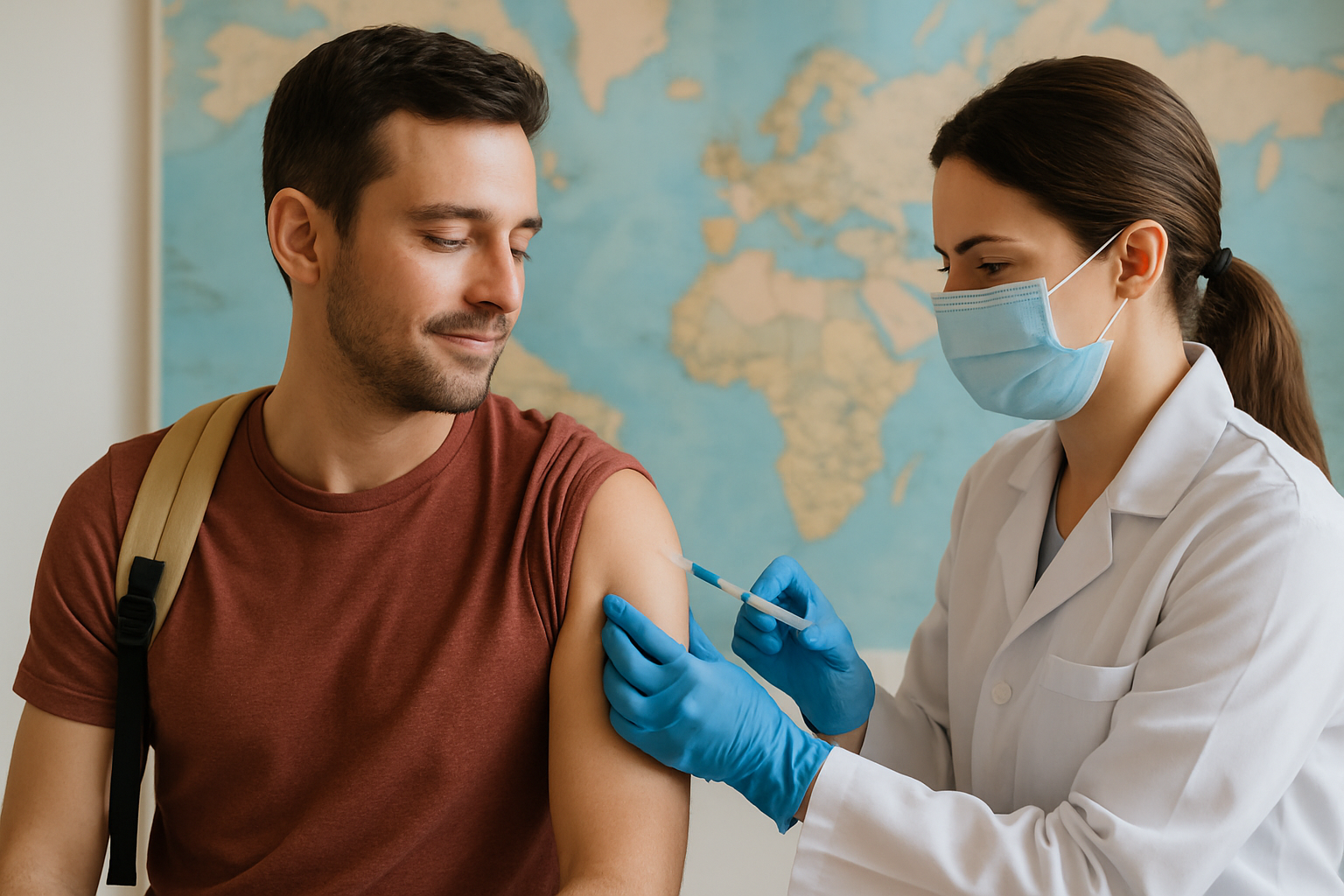Introduction: Why Yellow Fever Vaccination Is Essential for Travelers
1. What Is Yellow Fever?
Yellow fever is an acute viral hemorrhagic disease transmitted by infected mosquitoes, primarily the Aedes aegypti species. The virus is endemic in tropical and subtropical areas of Africa and South America. The disease gets its name from the jaundice (yellowing of the skin and eyes) that affects some patients. Symptoms can range from mild to severe and typically appear 3 to 6 days after exposure. In its initial phase, yellow fever can cause:
- High fever
- Headache
- Muscle pain
- Nausea
- Vomiting
For a small percentage of infected individuals, the disease progresses to a more toxic phase, which can be life-threatening. This severe form can lead to:
- Jaundice
- Abdominal pain with vomiting
- Bleeding from the eyes, nose, mouth, or stomach
- Kidney and liver failure
There is no specific cure for yellow fever; treatment focuses on managing symptoms. This lack of a cure underscores why prevention via vaccination is so critically important for anyone traveling to or living in at-risk areas.
2. Who Needs the Yellow Fever Vaccine?
The yellow fever vaccine is recommended for, and often required of, several groups of people:
- All travelers visiting high-risk countries: If your itinerary includes countries where yellow fever is endemic, vaccination is strongly advised to protect yourself from infection.
- People living in or near endemic zones: Residents of areas where the virus is prevalent should also consider vaccination to prevent local transmission.
- Those requiring proof for international travel: Many countries, particularly in Africa and South America, require travelers to present an International Certificate of Vaccination or Prophylaxis (ICVP), often referred to as a yellow card certificate, as proof of yellow fever vaccination upon entry. Without this certificate, you may be denied entry, quarantined, or even vaccinated at the border.
It is crucial to check the specific entry requirements for all countries on your itinerary, including transit countries, well in advance of your travel date. These requirements can change, so consulting official government travel advisories or a travel health clinic is always recommended.
3. Where to Get Yellow Fever Vaccine
Finding a reliable and authorized location to get your yellow fever shot is paramount, as not all clinics are licensed to administer this specific vaccine. At Access Health Services, we are an approved yellow fever vaccination provider, equipped to administer the vaccine and issue the official International Certificate of Vaccination. Our experienced healthcare professionals ensure you receive the correct information and care.
Other options for obtaining the vaccine include:
- Travel health clinics: These specialized clinics often have the most up-to-date information on travel health requirements and offer a full range of travel vaccinations.
- Some pharmacies: A limited number of pharmacies are authorized to provide travel vaccinations, including the yellow fever vaccine.
- Government-authorized centers: Public health departments or designated government clinics may also offer the vaccine.
Always ensure that the clinic or provider you choose is authorized to administer the yellow fever vaccine and can provide the International Certificate of Vaccination. This certificate is your official proof of vaccination and is essential for international travel.
4. How the Yellow Fever Shot Works
- Single-dose injection: For most individuals, a single subcutaneous injection (under the skin) is sufficient to provide long-lasting protection.
- Immunity develops within 10 days: For 80–100% of people, immunity against yellow fever develops within 10 days after receiving the vaccine. It is vital to get vaccinated at least 10 days before your departure to ensure you are protected and meet entry requirements.
- Lasts a lifetime for most individuals: The World Health Organization (WHO) now states that a single dose of the yellow fever vaccine provides lifelong protection for most individuals. This means that for the vast majority of travelers, a booster dose is not necessary after the initial vaccination. However, some countries may still require proof of a booster shot if your initial vaccination was more than 10 years ago, so it’s always best to check specific country requirements.
5. Possible Side Effects
Like all vaccines, the yellow fever vaccine can cause side effects, though most are mild and temporary. The most common side effects include:
- Soreness, redness, or swelling at the injection site
- Low-grade fever
- Headache
- Muscle aches
- Fatigue
These mild reactions typically appear within a few days of vaccination and resolve on their own. Severe reactions are rare but can occur, particularly in certain groups. These include:
- Infants: The vaccine is generally not recommended for infants under 9 months of age due to a higher risk of serious adverse events.
- Elderly individuals: Those aged 60 years and older may have a slightly increased risk of severe reactions.
- Immunocompromised individuals: People with weakened immune systems due to conditions like HIV/AIDS, cancer, or certain medications should discuss the risks and benefits with their healthcare provider.
It is crucial to disclose your full medical history to your clinician before vaccination to assess any potential risks and ensure the vaccine is safe for you.
6. Preparing for Your Appointment
To ensure a smooth and efficient vaccination appointment, it’s helpful to come prepared:
- Bring your passport: Your International Certificate of Vaccination will be linked to your passport details, so having it on hand is essential.
- Inform the clinician of your travel dates and itinerary: This helps the clinician determine if the vaccine is required for your destinations and ensures you receive it within the necessary timeframe before departure.
- Disclose any medical conditions: Be sure to inform your clinician about any allergies, chronic health conditions, medications you are taking, or if you are pregnant or breastfeeding. This information is vital for assessing your suitability for the vaccine and identifying any potential risks.
Conclusion: Travel Smart, Stay Protected
At Access Health Services, we are committed to providing comprehensive travel health services, including the yellow fever vaccine, to help you stay healthy and safe on your journeys. Visit our dedicated page for more information on the Yellow Fever Vaccine in Lanham, MD. For a complete overview of all our services, please explore our homepage. Travel smart, stay protected, and enjoy your adventures!



